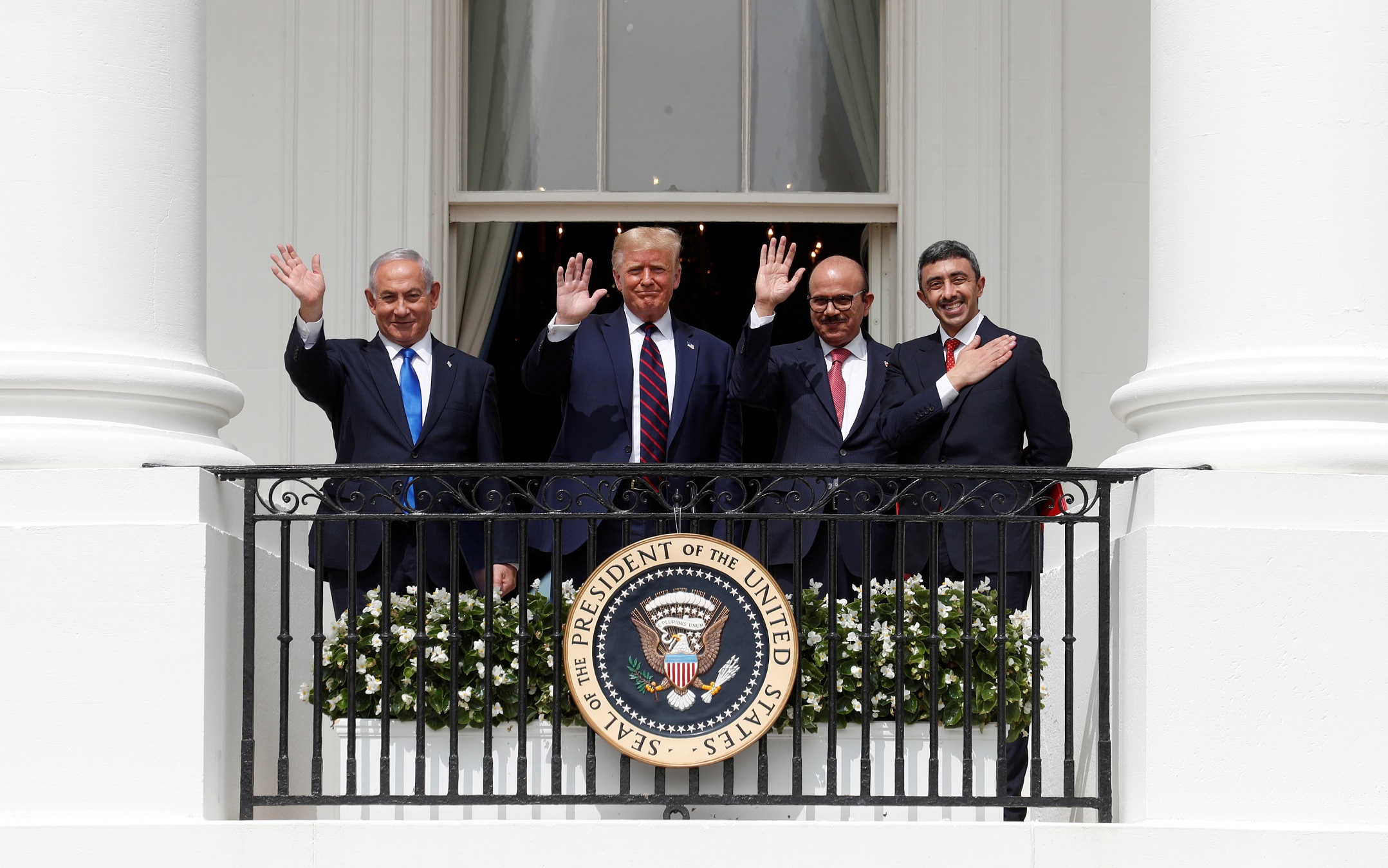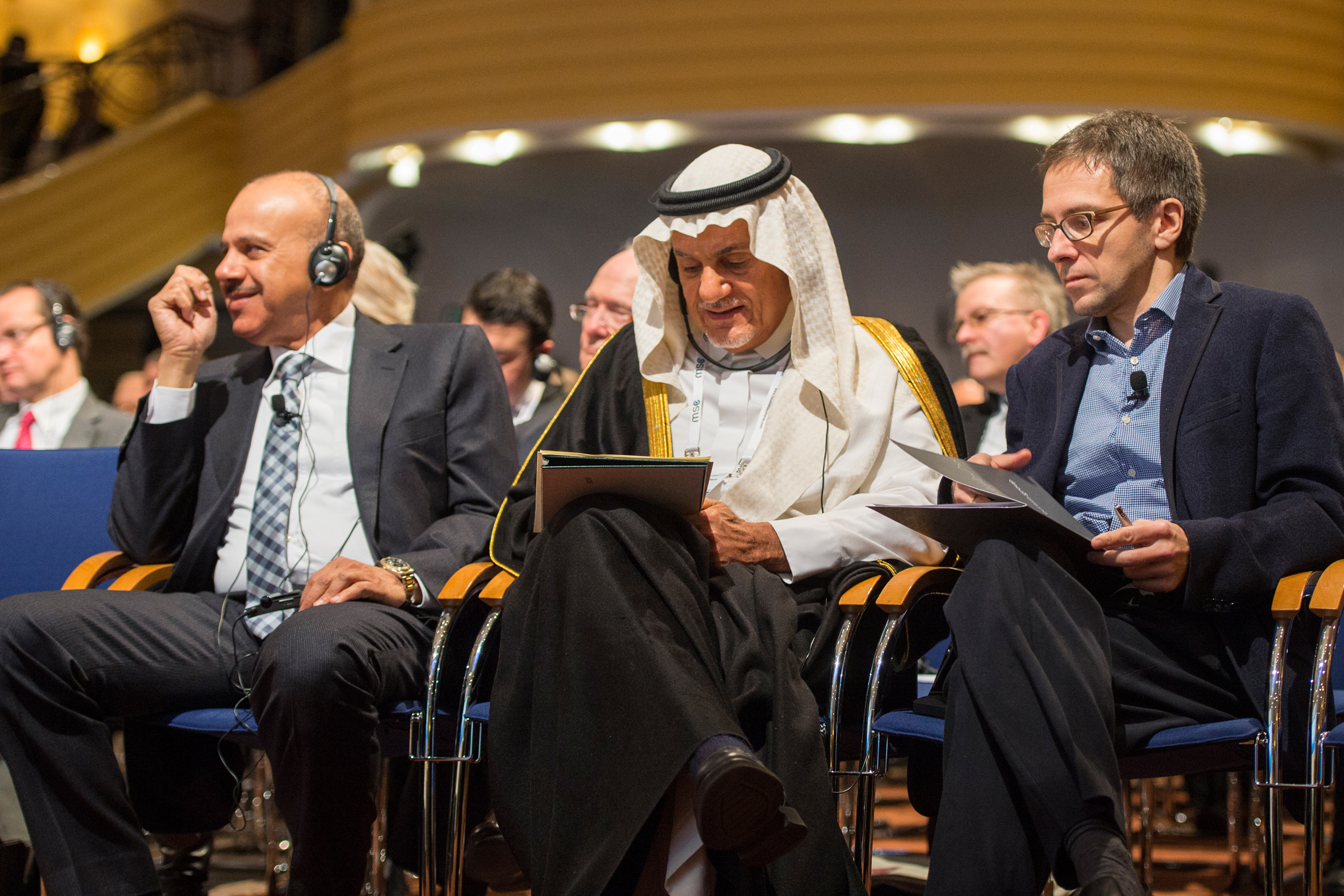INSS Insight No. 1828, February 18, 2024
As part of the preparations for “the day after” the war in the Gaza Strip, the United States aims to formulate a normalization agreement between Israel and Saudi Arabia and to involve Saudi Arabia in the Palestinian arena, including the Gaza Strip. Against this backdrop, and considering the time that has elapsed since the Arab Peace Initiative was issued as well as the increasing significance of the Palestinian issue in the Arab region, there is a need for a renewed and updated Arab peace initiative. A new initiative would bridge Israel with the Arab and Muslim world, building upon the original initiative, and taking into account the changes that have occurred since then, notably the Abraham Accords and the war in Gaza.
In 2002, during its meeting in Beirut, the Arab League adopted a peace plan for the Middle East, presented by Saudi Arabia’s crown prince and de facto ruler at the time, Prince Abdullah bin Abd al-Aziz al Saud. This plan, known as the Arab Peace Initiative, outlined principles for a political settlement between Israel and all Arab countries. It called for an Israeli withdrawal from the territories of the West Bank and the Gaza Strip, the creation of a sovereign Palestinian state with East Jerusalem as its capital, and the return of the Golan Heights to Syria and the Shebaa farms and the Shuba area to Lebanon. The initiative also stated that the problem of Palestinian refugees should be resolved in a “just and agreed upon” manner in accordance with UN General Assembly Resolution No. 194 (while highlighting the refusal of the Arab countries to grant citizenship to the Palestinian refugees in their countries). Following Israel’s withdrawal from all occupied territories and the establishment of a Palestinian state, the Arab countries would then be ready to establish “natural relations” (alaqat tabi‘iyya) with Israel and to accept the principle of the finality of the conflict. However, Israel perceived the notion of “natural relations” as an ambiguous concept that did not align with the notion of normalization (tatbi‘), which Israel has sought.
The Arab countries also pledged to encourage the non-Arab Muslim countries to establish peace with Israel. Twenty-two years later, at least declaratively, Saudi Arabia still supports the initiative. Similarly, the official position of the United States is that the Abraham Accords are not a substitute for resolving the conflict. Now, amid the war and the intensifying anti-Israel sentiment in the region, Riyadh has become much more committed to the idea of a Palestinian state, as reflected in the Saudi press and in statements by the kingdom’s senior officials. For example, at the Davos Forum in January 2024, Reema bint Bandar Al Saud, the Saudi ambassador in Washington, reiterated Israel’s “integration” in the region in exchange for its willingness to establish a Palestinian state. When asked if such a deal would lead to Saudi recognition of Israel, Saudi’s Foreign Minister Faisal bin Farhan Al Saud replied, “Certainly.”
Abraham Accords
Prime Minister Benjamin Netanyahu, alongside his commitment to stopping Iran’s nuclear ambitions, has set another ambitious goal: establishing peace with Saudi Arabia. There is no doubt that this is a worthy goal. Due to the kingdom’s status as the custodian of Islam’s holy sites and its prominence in the Arab world, an agreement with Saudi Arabia would grant additional legitimacy to other Arab and Muslim countries to forge relations with Israel. Moreover, as the largest economy in the Middle East, the Saudi market has significant potential for Israeli companies in diverse fields, and it is no secret that Saudi Arabia and Israel have quiet security ties. Publicly, the Saudis have been gradually and slowly moving toward Israel, in a kind of “creeping normalization.” However, to make this relationship with Israel public, Saudi officials have emphasized the importance of establishing a Palestinian state and the Saudi commitment to the Arab Peace Initiative.

The Abraham Accords notably improved and enhanced Israel’s strategic position in the region. However, the assumption that the Arab Peace Initiative and its demands for normalization with Israel have already become obsolete, and that peace with the Arab countries is no longer contingent on resolving the Israeli–Palestinian conflict, has proven incorrect. This is particularly true concerning Saudi Arabia, the most significant Arab country with which Israel does not have a formal agreement. Three years after the Abraham Accords, it is evident that the Palestinian issue is still on the agenda of the Arab world, certainly among the Arab public, where support for the Palestinians is strong and prominent. It is also becoming apparent that advancing the political process would significantly aid in furthering normalization efforts and broadening their scope.
Over the years, Saudi Arabia maintained a passive stance in relation to advancing the initiative; however, since the signing of the Abraham Accords, the kingdom has reiterated its commitment to this framework, possibly to counter criticism for giving external support for the Abraham Accords and assisting in their implementation (including the approval of flights to and from Israel flying over Saudi territory). King Salman bin Abdulaziz Al Saud emphasized in his statements of the necessity to resolve the Israeli–Palestinian conflict within the framework of the Arab Peace Initiative, linking it directly to normalization with Israel. It seems that the king and his son, the crown prince, agree that the kingdom cannot ignore the initiative that it itself conceived. Furthermore, the crown prince is considered to be more pragmatic toward relations with Israel than his father, based on statements he has made to the press and in various meetings, including one with Prime Minister Netanyahu in November 2020. Furthermore, during the visit of US president Joe Biden to Saudi Arabia in July 2022, Saudi Arabia’s Minister of State for Foreign Affairs Adel al-Jubeir reaffirmed the Saudi commitment to implementing the Arab Peace Initiative and establishing a Palestinian state with its capital in East Jerusalem.
Is the Initiative Still Relevant?
While the Arab Peace Initiative is comprehensive and addresses the territorial disputes between Israel and Syria (the Golan Heights) and Lebanon (the Shebaa Farms), its main focus is the Palestinian issue. In recent years, a new reality has emerged in the Middle East, in which Saudi Arabia and the countries that signed the Abraham Accords do not consider the normalization processes as a substitute for resolving the Israeli–Palestinian conflict. Saudi Arabia continues to underscore the importance of progress regarding the Palestinian issue as a condition for normalization with Israel. Similarly, the countries that are signatories to the Abraham Accords, especially the United Arab Emirates, publicly call for progress toward resolving the conflict. The latter even declared that the war in Gaza is pivotal point and, unlike in the past, conditioned the development and consolidation of the Abraham Accords with the establishment of a Palestinian state.
In 2014 Saudi Prince Turki bin Faisal Al Saud stated in an article in the Haaretz newspaper that the Arab initiative should serve as a basis for negotiations and that it is “not static and not a simplistic dictate, but can be adapted to include any voluntary agreement that is reached in contacts between the Israelis and the Palestinians.” This approach suggests that the initiative should be seen as a starting point for negotiations, but should not dictate them. In an interview with the Saudi media network Al-Arabiya, upon taking office, Prime Minister Netanyahu referred positively to the Arab Peace Initiative as a sign of a genuine desire to achieve a comprehensive peace.

Given these dynamics, Israel should reassess the principles of the initiative. This reassessment could align with Saudi Arabia’s renewed ambition to lead the Arab world; and the efforts of the kingdom’s de facto ruler, Crown Prince Muhammad bin Salman, to strengthen his domestic and international position as a pragmatic leader. A new peace initiative could mitigate the anti-Israel sentiment in the Arab street and the domestic criticism of Saudi Arabia for indirectly supporting the Abraham Accords.
Policy Recommendations
The position of the Arab countries on the Palestinian issue—by resolving the conflict on the basis of two states—is inscribed in the Arab Peace Initiative and declared, but it is not a condition for peace between Israel and other Arab and Muslim countries. Rather, the initiative is an outline of principles for negotiations and a political settlement, and reaching consensus on this framework as a basis for negotiations could enable interpretations and practical solutions more favorable to Israel.
For example, the initiative does not explicitly mention the “the right of return” but refers instead to the “Palestinian refugee problem” as a matter that should be “agreed upon” and resolved through agreement with Israel. Thus, it is critical for Israel to assert that realizing the right of return to sovereign Israeli territory is not viable. Israel should also insist on addressing a solution to the problem of the Jewish refugees from Arab countries, who were persecuted and expelled or fled and whose property was confiscated by the authorities and others. Moreover, although the initiative does not demand the evacuation of all the Israeli settlements in the West Bank, its call to return to the 1967 borders, without mentioning territorial exchanges, implies the removal of all the settlements. Therefore, it is crucial to call for the inclusion of the principle of territorial exchanges to allow room for flexibility regarding settlement arrangements and recognition of the settlement blocs adjacent to Israel’s border.
A renewed declaration by Israel, acknowledging the Arab Peace Initiative as a basis for negotiations, along with a genuine commitment to strengthen the renewed/amended Palestinian Authority and to renew the political process with it, would align with President Biden’s vision for a new regional architecture. This vision builds on the normalization process between Israel and Saudi Arabia, adding a crucial layer to the Abraham Accords. Within this framework it would also be possible to end the war in the Gaza Strip and advance in the Palestinian arena, especially once Hamas is no longer a governing sovereign entity. Progress in these directions would allow Saudi Arabia and other Arab countries, including Jordan, Egypt, and Morocco, to broaden the legitimacy of their agreements with Israel and to enhance their bilateral relations.
To sign a full peace agreement with Israel, Saudi Arabia will demand that Israel make significant changes, which it could present as efforts to advance the two-state solution, as outlined in the Arab Peace Initiative. Recognizing that the dynamics have changed since 2002, Israel should also seek modifications to the initiative. Therefore, a new Arab peace initiative, two decades after it was first issued and three years after the Abraham Accords were signed, could significantly benefit Israel, especially if it aligns with the American regional vision and gains US support. Israel should consider this updated initiative as a basis for strengthening relations with the United States and ensuring the influential American role in the region. Moreover, an updated version of the Arab Peace Initiative would serve as a central point for discussion between Israel and Arab countries, particularly Saudi Arabia. In these discussions, Israel would present its demands and positions while referring to the Abraham Accords as a model for understanding and normalizing of relations.




